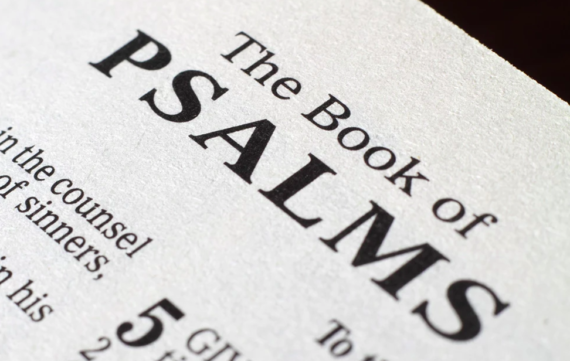If he is our God, it will show in our actions.
Seek
If he is our God, we will seek him.
“O God, you are my God; earnestly I seek you; my soul thirsts for you; my flesh faints for you, as in a dry and weary land where there is no water. So I have looked upon you in the sanctuary, beholding your power and glory” (1-2).




The desire for God is expressed here in powerful terms. These words should have had special meaning to a people living in that era such as ours. Our time, our land, also seems to be a dry and weary land where there is no spiritual water (1).
The idea that we must seek the Lord as a thirsty man seeks water is, of course, echoed in Matthew 5:6, “Blessed are those who hunger and thirst for righteousness, for they shall be satisfied” (see also Eph 3:14-21; Phil 1:21ff).
This desire is acted upon by those who truly experience it. God is to be looked for, not just vaguely longed after. Those who are really thirst seek urgently for something to drink. Those who really thirst for God seek him urgently. They do not neglect opportunities for worship. They are frequently found in the sanctuary, beholding his power and glory (2).
Praise
If he is our God, we ought to praise him.
“Because your steadfast love is better than life, my lips will praise you. So I will bless you as long as I live; in your name I will lift up my hands. My soul will be satisfied as with fat and rich food, and my mouth will praise you with joyful lips, when I remember you upon my bed, and meditate on you in the watches of the night; for you have been my help, and in the shadow of your wings I will sing for joy” (3-7).
Cling
If he is our God, we should cling to him. In verse 8 the writer says, “My soul clings to you.” This thought is anticipated also in verse 6 where the commitment is to remember God.
Note that the commitments to seek, praise and cling to God are expressed in terms of both public worship assemblies and private life. God is to be sought in the public sanctuary (“So I have looked upon you in the sanctuary,” 2).
He is also to be remembered in the privacy of the bedroom (“when I remember you upon my bed, and meditate on you in the watches of the night,” 6).
So, we have in this psalm a clear road map for spiritual life. We need only to seek him, praise him, and cling to him in both public and private life.
The writer of this psalm found that doing so led him to a “love that is better than life” (3). Many others through the ages have found the same satisfaction. But the lukewarm will never know that love.

